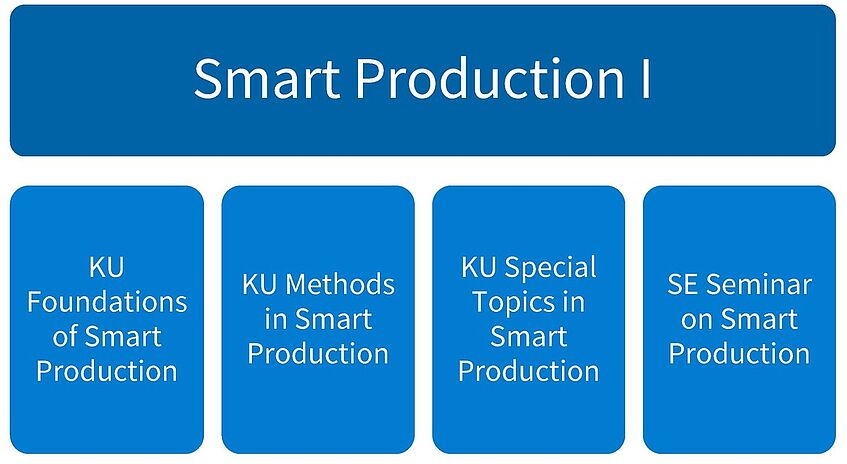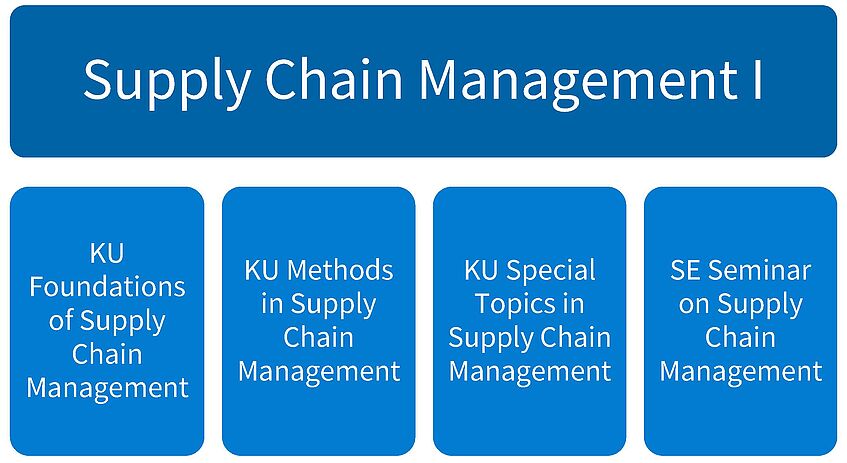In the specialization phase, students can choose from the two minors “Smart Production I” and “Supply Chain Management I”. The major “Smart Production and Supply Chain Management II” can also be completed in combination with one of these two minors.
Prerequisites for both Minors (10 ECTS)
- Data Analytics (4 ECTS)
- Management II - Production, Logistics and Supply Chain Management (2 ECTS)
- Principles of Decision Support (4 ECTS)
MA (I)BW discontinued studies and new curricula starting WS24
The new Master's programmes Business Administration and International Business Administration start on October 1st 2024. With this date, the expiry period for the former curricula "Master's Programme in Business Administration" and "Master's Programme in International Business Administration" begins and no enrollment for the previous curricula will be possible anymore.
You have the possibility to either enroll in the new curriculum or to complete the current curriculum by 31 October 2026.
For more details and a list of Recognition of completed courses, please refer to the Website of the SSC.
Minor: Smart Production I
Students who complete this module have in-depth knowledge in the field of “intelligent production”. They have the ability to use quantitative methods to classify, model and solve fundamental problems in production planning. These include problems of material requirements planning, production program planning, lot sizing and resource planning and machine allocation planning. Students also learn the specifics of scientific writing in the field of production planning.

Overview of courses
Minor Smart Production I (20 ECTS) | VM16
Foundations (8 ECTS)
Methods and Special Topics (8 ECTS)
Seminar (4 ECTS)
* will be offered starting SoSe25
Minor: Supply Chain Management I
After completing the module, students will have in-depth specialist knowledge in the field of transportation logistics and supply chains. They can apply the acquired knowledge of quantitative methods for strategic, tactical and operational planning in companies. After completing the module, students are thus able to map and solve fundamental problems in supply chain management (e.g. network design, demand forecasting, inventory management, risk pooling).

Overview of Courses
Minor Supply Chain Management I (20 ECTS) | VM17
Foundations (8 ECTS)
Methods (4 ECTS)
Seminar (4 ECTS)
Special Topics (4 ECTS)
